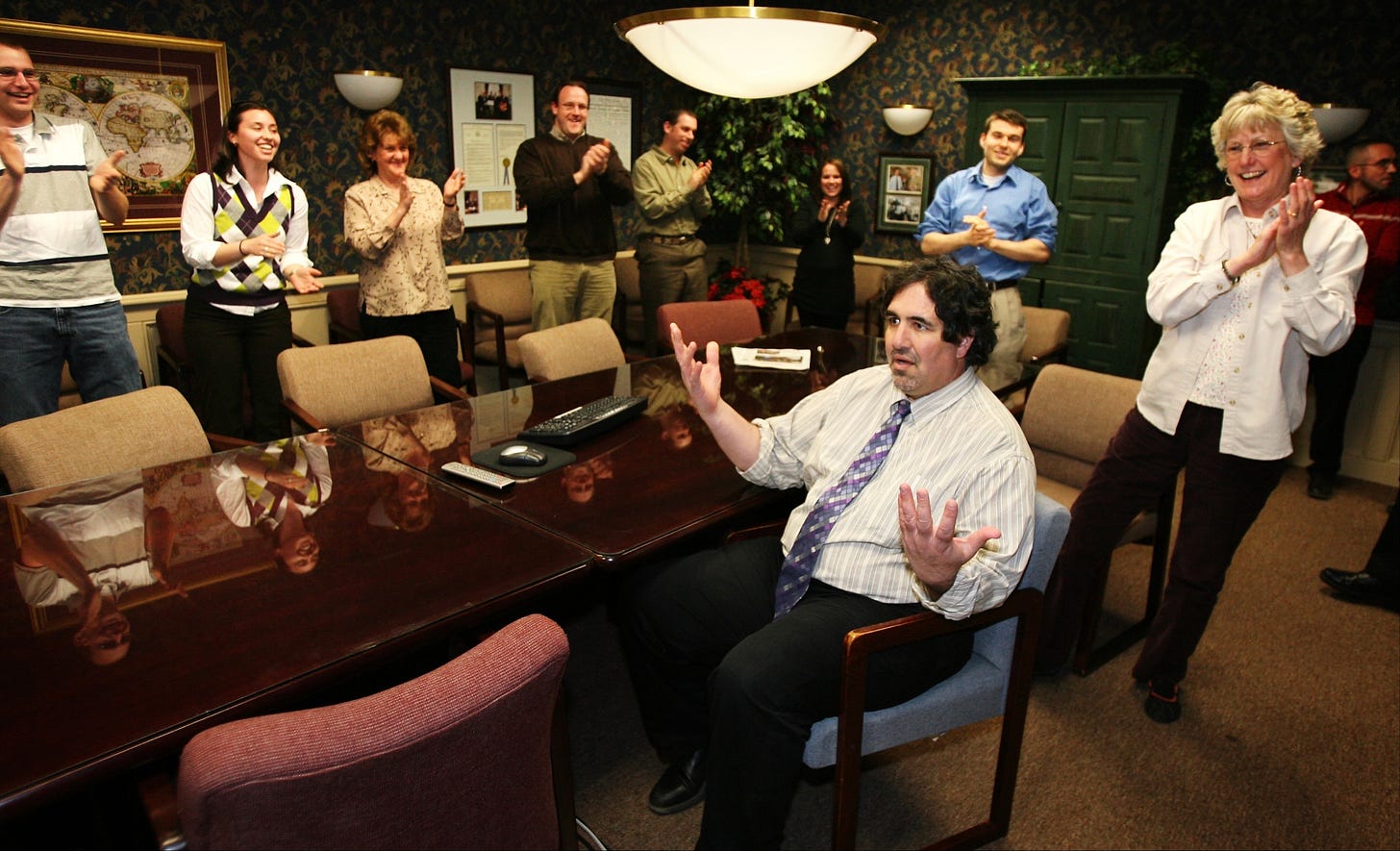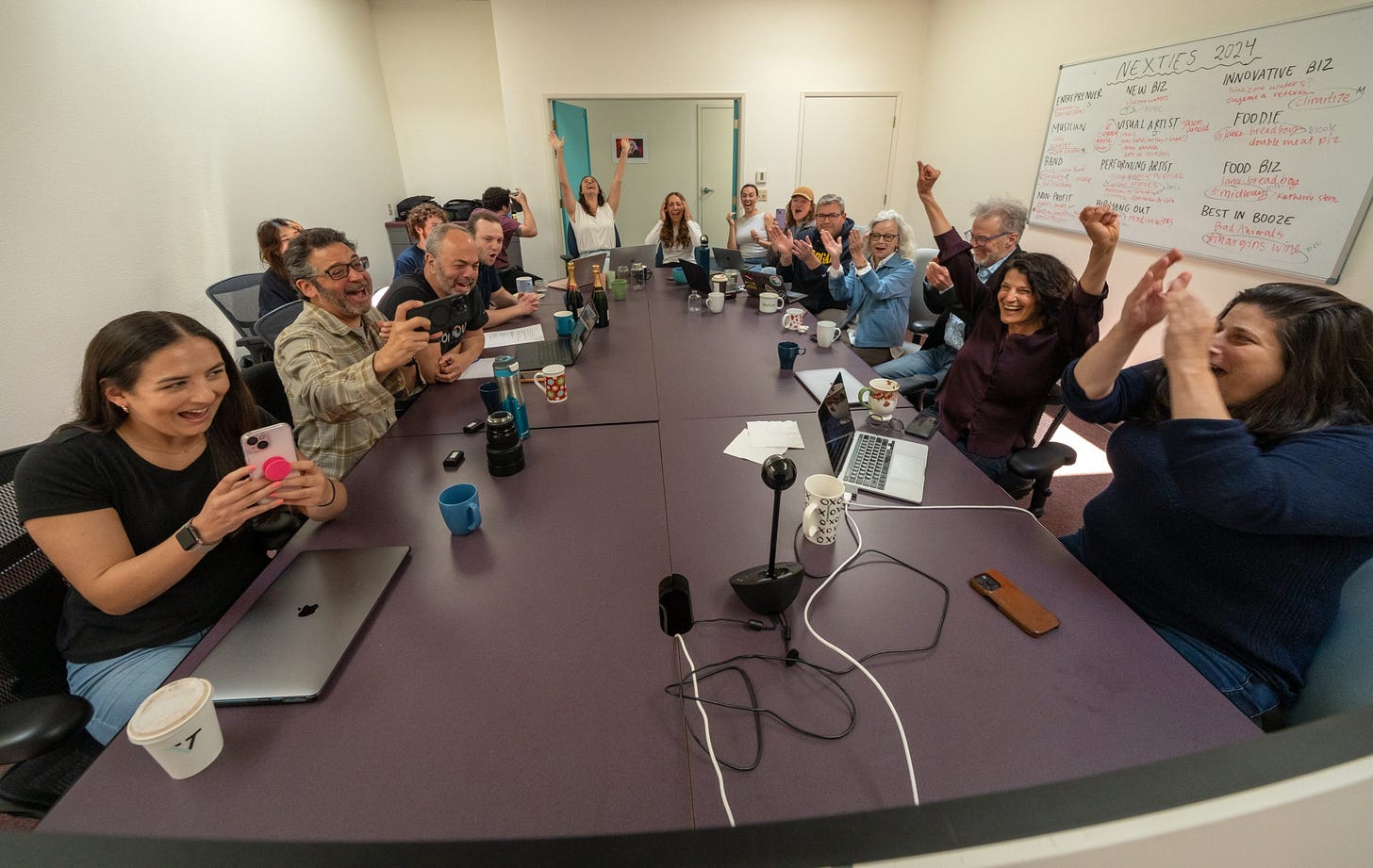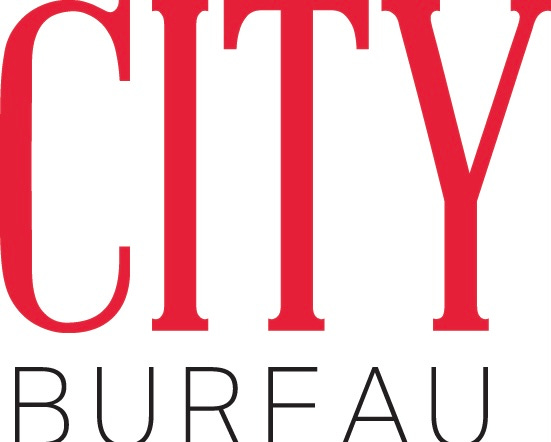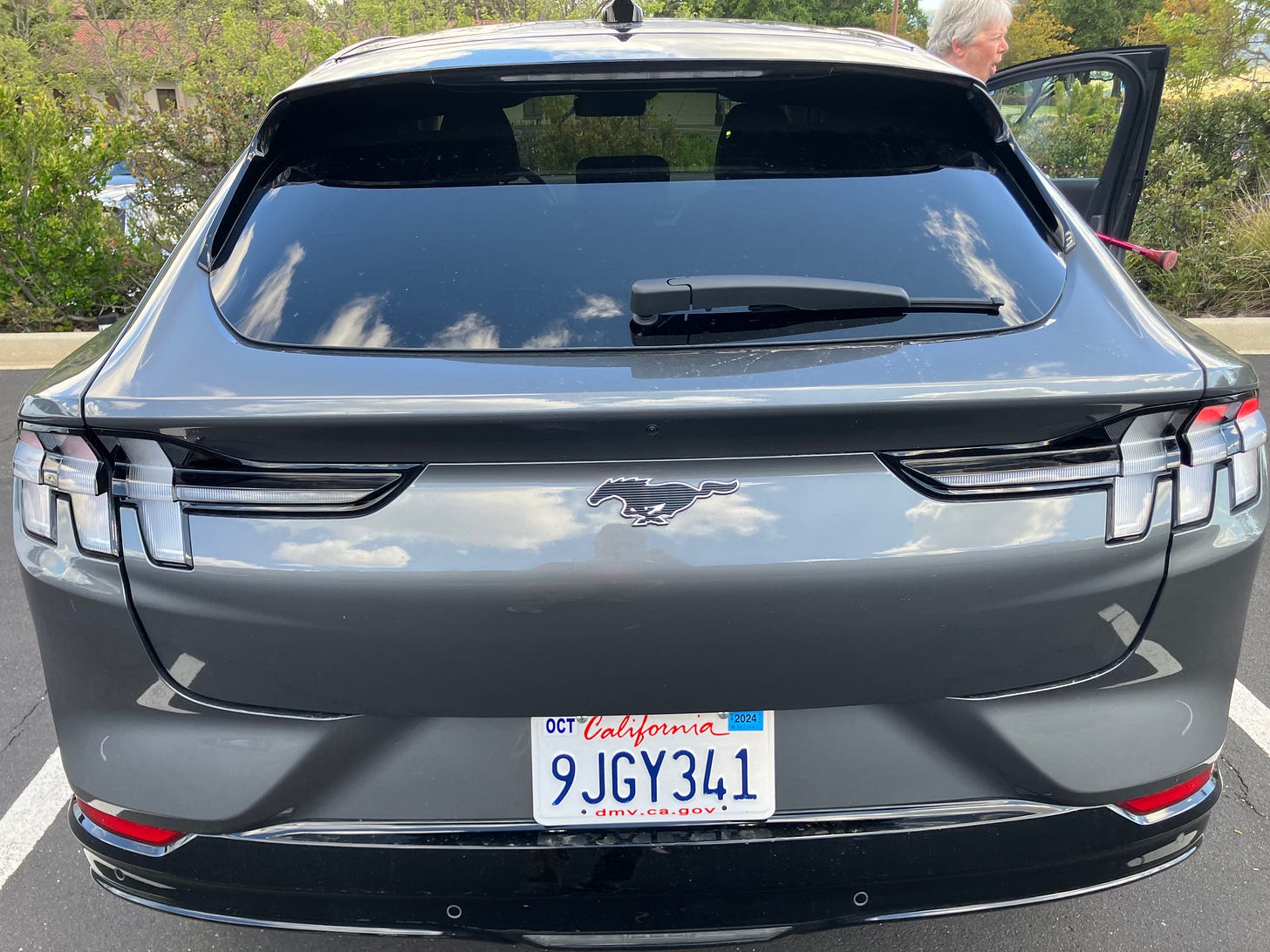Pulitzer winners take on a new, perhaps hopeful look
Climate Action Walk scheduled for Saturday, May 17 in Glens Falls
Please consider supporting The Front Page with a paid subscription: HERE
Small communities all across the country continue to lament the loss of their newspapers. They see less in-depth coverage, journalism and reduced local coverage. Many communities have lost their newspapers entirely.
There is a realization of the crisis unfolding.
Others accept it is just the end of an era.
So when the Pulitzer Prize winners were announced this week, it was not surprising to see fewer traditional print newspapers among the winners. There was the usual winners - New York Times, Associated Press, Washington Post - among the winners, but fewer metro newspapers.
The statistics backed that up.
The Nieman Lab reported there were 17 traditional newspapers as Pulitzer finalists in 2022. That number dropped to 13 in 2023, then eight last year.
But if you look closer at the winners, there is reason for hope.
Among the Pulitzer winners this year were Lookout Santa Cruz, the Invisible Institute and City Bureau.
Ever hear of them? I had not.
They are among the new wave of moderately staffed journalism organizations carving out a new path through collaboration with other news organizations or as non-profits.
They may be the hope for community newspapers with business models without the pressure of unrealistic profit margins and cuts from corporate hedge funds.
Lookout Santa Cruz, which has only been in existence since November 2020, won the Pulitzer Prize for its coverage of catastrophic flooding and mudslides that destroyed more than 1,000 homes and businesses in northern California.
Ken Doctor, Lookout Santa Cruz's founder and CEO, has been following the digital transformation and disruption of the news media for the past 15 years. I've heard him speak about digital news being the future.
Doctor's first-of-its-kind local news, for profit model hopes to "change the conversation about how our times and digital technology now make possible the repopulation of news deserts in the 2020s."
Doctor said on Monday his news organization had to be one of the youngest ever to win a Pulitzer Prize.
But they are not alone.
The Pulitzer Prize for Local Reporting went to two Chicago-based non-profits - City Bureau and Invisible Institute.
The two pooled their resources to investigate how city police handled missing persons cases involving Black women and girls on the south side of Chicago. This type of collaboration may be the future for investigative journalism.
The Invisible Institute describes itself as "a nonprofit journalism production company on the South Side of Chicago. We work to enhance the capacity of citizens to hold public institutions accountable."
City Bureau described itself as "a nonprofit journalism production company on the South Side of Chicago. We work to enhance the capacity of citizens to hold public institutions accountable. Among the tactics we employ are investigative reporting, multimedia storytelling, human rights documentation, the curation of public information, and the orchestration of difficult public conversations. Our work coheres around a central principle: we as citizens have co-responsibility with the government for maintaining respect for human rights and, when abuses occur, for demanding redress.'
Both organizations are delivering on their promise.
The Invisible Institute not only works with other journalism organizations but with people outside journalism.
Founder Andrew Fan told the Poynter Institute, "We're a small team of reporters, but also we have civil rights lawyers and data scientists and people who are focused don working with young people and doing engagement and building relationships. And we think all of those pieces matter."
The small organizations doing great work did not end there.
https://www.poynter.org/business-work/2024/lookout-santa-cruz-invisible-institute-city-bureau-pulitzer-winners/?utm_source=Poynter+Institute&utm_campaign=7b1a902145-05072024+-+The+Poynter+Report&utm_medium=email&utm_term=0_-7b1a902145-[LIST_EMAIL_ID]&mc_cid=7b1a902145&mc_eid=7afe96fd08
Mississippi Today was a finalist in Local Reporting by working with the New York Times in examining corruption and abuse of Mississippi sheriffs.
The Villages Daily Sun was a finalist for its investigation into the inaction of Florida officials before, during and after Hurricane Ian.
The Honolulu Civil Beat was a finalist in Breaking News for its coverage of the Maui wildfires.
Maybe there is hope after all.
Maybe journalism has a future.
The Pulitzer Prize website not only shows the winners of the awards and the comments of judges, but you can read the winning entries.
These are the types of stories that make a difference in communities, countries and sometimes the world.
I challenge each of you to read one of these Pulitzer winners a day over the next few weeks.
It might provide some inspiration.
Some much needed hope about the future and we need that now more than ever.

Post-Star Pulitzer
This year marked 15 years since Mark Mahoney won the Pulitzer Prize for editorial writing for The Post-Star in Glens Falls.
Mahoney left journalism for a brief time, then return to become editorial page editor of The Gazette in Schenectady where he continues to write editorials today.
For some time, I've been meaning to reach out to Glens Falls Mayor Glens Falls Bill Collins about the anniversary. When local high school teams win state championships, it is not unusual to see a sign put up commemorating the accomplishment.
There should be a plaque somewhere in Glens Falls to recognize Mark Mahoney's Pulitzer and the great journalism done at The Post-Star.
ProPublica Pulitzer
It was especially gratifying to see ProPublica's Pulitzer Prize for Public Service for its "Friends of the Court" series which exposed the cozy relationship between several Supreme Court justices and right-wing billionaires.
The reporting highlighted the relationship between Supreme Court Justice Clarence Thomas and billionaire Harlan Crowe and other Supreme Court justices.
The series put the heat on the Supreme Court to enact an ethics policy, but it is not clear whether it is working or not.
Until it does that, confidence in the Supreme Court will continue to drop.
Climate Action Walk
There are so many problems facing our communities, we often don't know what to do.
Some of those answers might be found at the Climate Action Walk on Saturday May 18.
Supporters will gather in City Park in Glens Falls at 1 p.m. and walk down Glen Street to Crandall Park.
The focus of the event is ways in which we can work together to impact and mitigate climate warming with local actions.
There will be more than 20 tables set up with speakers making a three to five-minute presentation about what can be done locally.
If you believe that climate change is the issue for the ages, but not sure how you can make a difference, this is the event for you.
I hope to see you there. I will be hosting the event and introducing each of the speakers.
Going electric
While renting a car in Los Angeles last week, the man at the counter wanted to know where I was going.
Simi Valley is just a 50-mile drive so he said I would be fine. He then asked if I was OK with renting an electric vehicle.
What I got was the 2024 Ford Mustang Mach-E. It was my first experience driving an electric vehicle. While the SUV looks nothing like the Ford Mustang you remember, it was a pretty nice ride.
The instructions were pretty simple:
1. Hit the on button on the dashboard. Unfortunately, it is unclear whether the car is running.
2. Turn the knob on the counsel to drive. Still no noise.
3. Hit the gas. And you begin to move. Still no noise.
The 50-mile drive was smooth and the car had plenty of power for Los Angeles freeway driving.
The most confusing part was getting into the car since there is no door handles, just a push button that opens the door.
After that, it was a breeze.
Chapman event
For a few decades now, Glens Falls has had a sister city in Japan. Each community has sent delegations to visit the other.
On Wednesday, May 15, Milly Koh of the Sister Cities Committee of Glens Falls &Warren County will speak at the Chapman Museum about the most recent visits. The program begins at 7 p.m.
Ken Tingley spent more than four decades working in small community newspapers in upstate New York. Since retirement in 2020 he has written three books and is currently adapting his second book "The Last American Newspaper" into a play. He currently lives in Queensbury, N.Y.








We are so fortunate, here in Greenwich, to have Darren Johnson at the helm of the Greenwich Journal Press. His commitment to the historic paper is deeply appreciated throughout the area.
Yes, there is hope! "Necessity is the mother of invention" and it is heartwarming to see these new forms spring up in order to continue unbiased reporting. Those crucial investigative reports are uncovering appalling and corrupt behavior at the highest levels and also within local, smaller communities, where in both cases, they fly in the face of public trust and public service. Thank you for providing us with an opportunity to read this important form of democracy in practice.